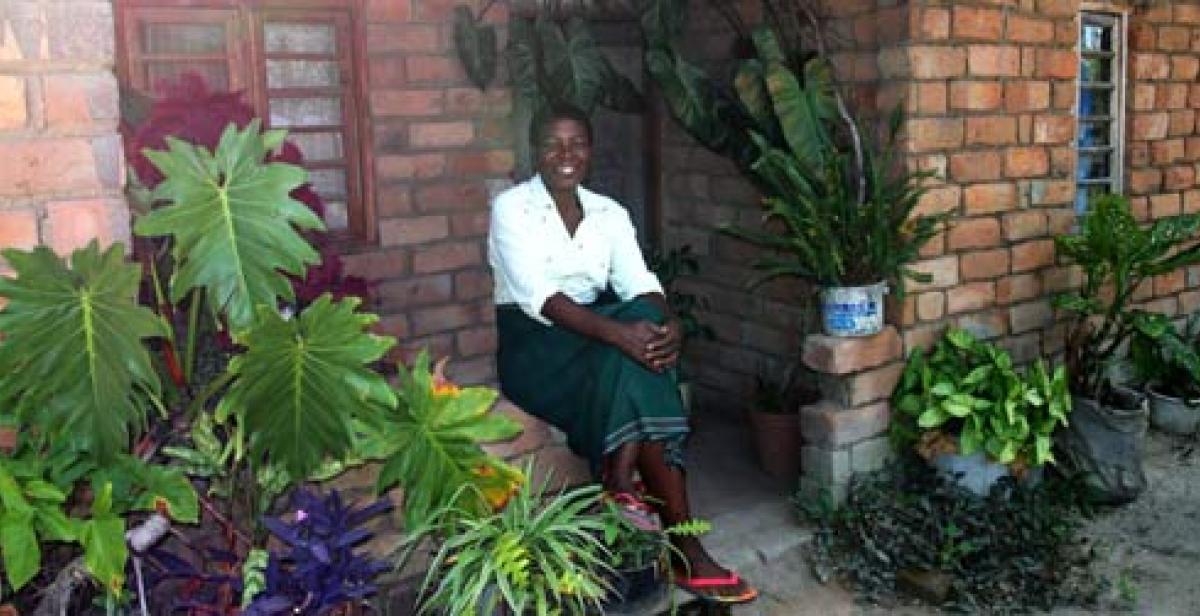‘No Farming No Life’ reads a shop sign as we enter the countryside outside Lilongwe, the capital of Malawi. Nothing could be more appropriate in a country where over 90% of the population is dependent on farming.
But farmers in Malawi see many challenges. The country is struggling with environmental degradation and soil erosion, and climate change is already making its marks.
I’m visiting Progressio’s Malawi programme and today I’m off to visit farmers working with Progressio partner the Malawi Organic Growers Association (MOGA), to find out how they are addressing some of these challenges.
MOGA is not about ‘business as usual’. The Malawi government has implemented a scheme of subsidised fertilisers, but MOGA has a vision of a more sustainable approach that can also lift farmers out of poverty in other ways: organic farming.
And they are not only targeting a few select farmers – they want the whole nation to go organic, to battle environmental degradation and with it secure a more profitable market, both on a local and international scale. In short, it’s a small organisation with a big vision.
So what is the impact on the small-scale farmers that MOGA is working with? Is organic produce just a Northern fad that doesn’t in fact have much relevance in a country like Malawi? And is it really addressing the key challenges that farmers here are facing?
To find out I speak to two different MOGA groups who are learning the ropes of going organic. In fact, in a nation that has become used to synthetic fertilisers, it’s also about relearning some of the tricks of the past, and combining them with new methods and tools to better address some of the new challenges with climate change.
But how does MOGA convince farmers already on the brink of survival to change methods in an already unpredictable climate?
It’s true that for some the initial incentive was simply gaining access to basic inputs, such as free seeds distributed by MOGA. But the real benefits soon became clear to the farmers. Even after a short time, applying manure to the soil has made a real difference to the farmers, reducing soil erosion and better conserving the moisture in the soil.
All the farmers here say the rains are increasingly unpredictable – and this method, supplemented by using small-scale irrigation pumps donated by Progressio, is already key for addressing some of the challenges of climate change.
Other benefits are more long term and not always directly visible. The marketing of organic produce still needs to be developed further to ensure premium prices – which is one of the tasks for Progressio’s development worker, Tirivafi Shuro.
But even so, there are some immediate impacts on the household economy. By going organic, little goes to waste. Even with subsidised fertilisers, the cost is still there – and there is often a need to buy more fertilisers for the full price. Organic farmers on the other hand use manure from their own farms. All the farmers I speak to agree – by going organic they can save money.
And what better proof of the benefits of going organic than Nifa Chumachiyenda. Nifa, 40, is a widow with two grown-up daughters and a small grandson. She farms 1.5 hectares of land both for food for the family and for selling in the market when she can.
Nifa was one of the instigators of the MOGA group in her community. And the result? Nifa eagerly takes me by the hand, because she wants to show me something – a house.
Since she went organic she has been able to save enough money to start building a brick house. Now, four years down the line, it’s almost complete and furnished with sofas and all.
So I return to Lilongwe not with fruits and vegetables on my mind, but a house – solid proof of a more sustainable life, both environmentally and financially.
And I’m pleased that MOGA’s hard work has also paid off in other ways. In only a month or so Malawi will finally have official organic standards, which will make the access to international markets much easier. This is a major win for MOGA.
There are still struggles ahead to ensure the small-scale farmers continue to benefit, with bigger businesses involved. But I’m impressed with the progress so far and glad that Progressio is part of this journey.
Petra Kjell is Progressio’s environmental advocacy and policy officer.
Photo: Nifa Chumachiyenda on the porch of her new brick house



